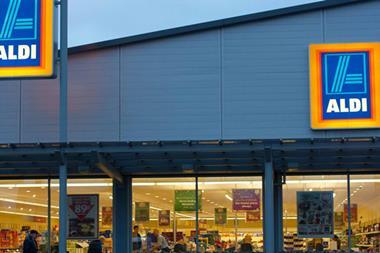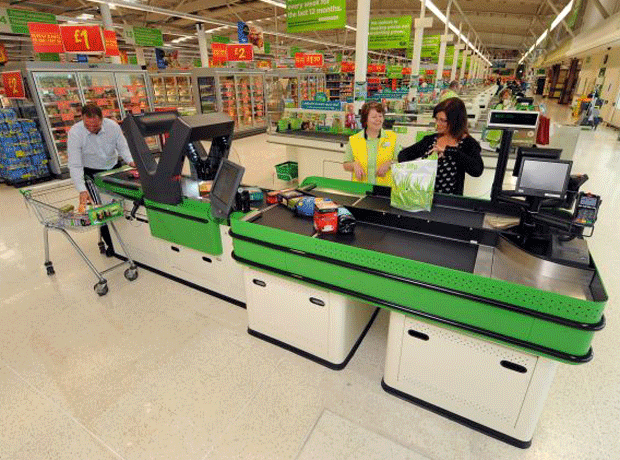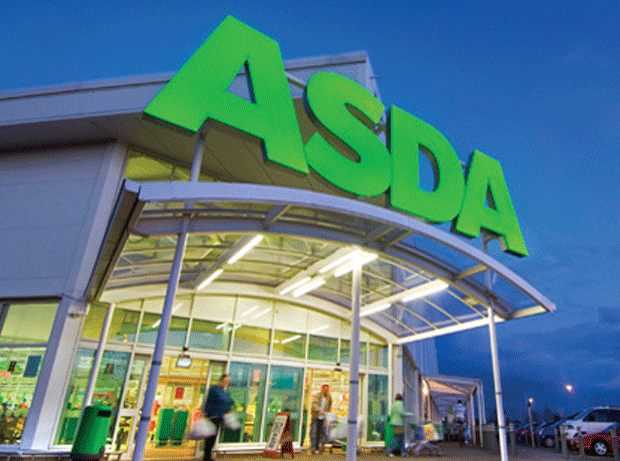Sir: I am writing in response to your piece on The Co-op investing £100m in price reductions (‘Co-op targets Express/Local with price cuts,’ 26 April, p6). Promotions - such as half-price, lunch deals and link-saves - and their effectiveness have long been a topic of hot debate; an entire industry exists around their planning and evaluation.
However, moves by the big supermarkets to implement every day low prices indicate a fundamental shift in the future of promotions. The conventional wisdom is that cutting promotions and moving to EDLP results in a drab in-store experience devoid of ‘theatre’. Yet Aldi - the country’s fastest-growing grocer - offers very few promotions and, at the risk of understatement, this doesn’t seem to be doing it any harm. Some 45% of the big four’s sales are currently the subject of some form of promotion. For Aldi, the equivalent figure is just 3% and falling.
A consistent EDLP and low-cost approach presents many advantages. Sales are predictable when not subject to wild promotional swings, facilitating consistent ordering patterns and dramatically lowering inventory across the supply chain. There is also a benefit to shoppers that EDLP is transparent and reliable, cutting through the often confusing world of promotions.
The Co-operative has adopted ‘Fair & Square’ pricing, Asda now has ‘Price Lock’, and Tesco proclaims ‘Prices down and staying down’. The language used is very long-termist - it looks like EDLP is here to stay.
Edward Garner, director, Kantar Worldpanel
Close menu
- Home
- Retail & Wholesale
-
Products & Suppliers
- Back to parent navigation item
- Products & Suppliers
-
Product Categories:
- Back to parent navigation item
- Product Categories:
- Alcoholic drinks
- Bakery
- Cereals & breakfast
- Cheese
- Chicken & poultry
- Chocolate
- Confectionery
- Crisps, nuts & snacks
- Dairy
- Fish
- Fresh produce
- Frozen
- Household
- Meat
- Own Label
- Sauces & condiments
- Seasonal
- Soft drinks
- Vaping
- Vegan & plant-based
- World foods
- Suppliers
- People
- Reports & Data
-
Topics A-Z
- Back to parent navigation item
- Topics A-Z
-
Popular topics:
- Back to parent navigation item
- Popular topics:
- Cost of living crisis
- Crime
- Deposit Return Schemes
- Finance
- Government & Regulation
- Health
- Inflation
- Loyalty
- Marketing
- Mergers & Acquisitions
- New Product Development
- Sourcing
- Supply chain
- Sustainability & environment
- Technology
- Ultra Processed Foods
- Vaping
- A-Z all topics
- Content by type:
- Events
- Ask iA (beta)
- Subscribe now
EDLP is here to stay says Kantar. It is working for Aldi
2014-05-03T07:01:00+01:00
Sign in to comment on this article
Not logged in before? Register for FREE guest access today.
You will be able to:
- Read more stories
- Receive daily newsletters
- Comment on stories
Advert


















No comments yet